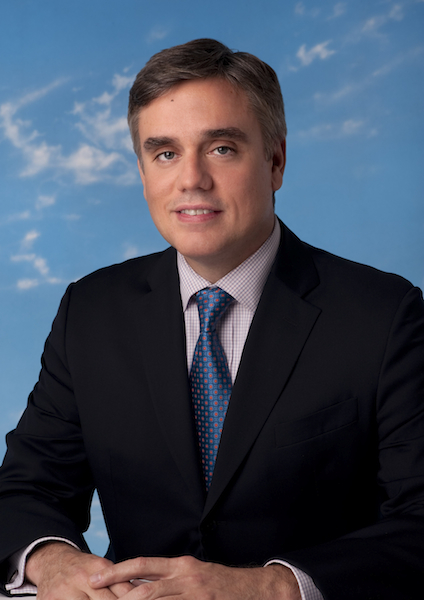 Steve Krupa, Managing Member, Psilos
Steve Krupa, Managing Member, Psilos
"We are about to have a significant flip in the competitive dynamics of healthcare," Steve Krupa, managing member and Chief Operating Officer, of healthcare investment firm Psilos told MobiHealthNews in a recent interview. "It’s going to be quite severe and shocking across the board for the big and small players delivering health insurance, providers, and consumers, ultimately. This is a result of ObamaCare, really, but also of everything that is going on in healthcare today."
Krupa explains that how businesses -- employers -- react to these change will have ramifications on the overall competitive dynamics in healthcare. He said that in the not too recent past, businesses really had only one course to pursue, but now they have four.
"They could continue the way they are going, which is providing some kind of group insurance program to their employees," Krupa said. "They could try to impact the type of group insurance they offer and move to a more value-based plan design, but have a very hands-on approach with respect to how the health insurance is delivered. Thirdly, they could incorporate a private exchange, which Aon, Towers, Mercer and others are very actively marketing. And lastly they can begin a strategy -- that we are hearing a lot of companies are doing -- that would eventually get them out of being the provider of healthcare altogether. Of course, the individual markets being established are providing them with that exit. Maybe not this year, but in future years."
Krupa argues that these individual public exchanges change everything for healthcare, because for the first time there will be a greater emphasis on the individual needs of the consumer in healthcare, which he says hasn't received much emphasis at all up until this point.
"What we have been into for the past 15 years on the software side and the digital health side is how to use data analytics and applications to improve the quality and lower the cost of healthcare," he said. "It's a simple idea, but it was tougher to do back then than it is today. The other thing we have been interested in is getting competitive forces to begin to work in the healthcare industry. Certainly that wasn’t the case 15 years ago either."
In the past decade Psilos' portfolio companies have seen a number of exits, including the sale of consumer directed health plan Definity Health to UnitedHealth Group; Extend Health, a large private health insurance exchange company, to Towers Watson; and ActiveHealth to Aetna 10 years ago.
"ActiveHealth began to take data that is not that different than the data Castlight is getting its hands on, but instead of thinking about that data from a transparency point of view, they thought about it from a care point of view," Krupa said. "They are trying to create health records out of claims data and then run it through a smart engine to find instances when people weren’t being cared for well."
Two of the companies in Psilos' portfolio today include SeeChange Health and PatientSafe Solutions. SeeChange is focused on value-based health plans that provides consumers with incentives for their healthy behaviors that actually improve their insurance benefits, instead of just rewarding them with, say, a pair of tickets to a baseball game, Krupa said. For SeeChange members, healthy behavior changes really affect the way their insurance works in terms of their deductibles and copayments, he said.
While Krupa said that many of the major changes in healthcare have helped marched the industry toward the consumer, many consumer-facing health services are still largely irrelevant.
"When I look at digital health applications this is the first question I ask: 'How relevant is this?' and 'Does it really matter?' The testing point, from my perspective, is that most consumers don’t want to be engaged in health if they don’t have to be," Krupa said. "I think that is why Castlight is pretty cool, because it is a highly relevant interaction. It is an interaction that everybody is apt to face now. As I said before, the movement now is to put the dollars and the responsibility into the individual’s hands. [That is the] beginning of people really wanting to engage outside of a niche wellness market."


















